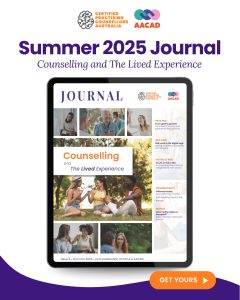Understanding the Royal Commissions: A Turning Point in Care
Australia’s aged care and disability support sectors have undergone major reform, largely driven by two recent Royal Commissions:
📌 Aged Care Royal Commission (2018–2021)
The Royal Commission into Aged Care Quality and Safety was launched in response to widespread concerns about neglect, abuse, and substandard care in aged care. It examined residential facilities, home care, and community-based services.
📌 Disability Royal Commission (2020–2023)
The Royal Commission into Violence, Abuse, Neglect and Exploitation of People with Disability explored systemic failures across education, health, justice, and support systems, highlighting persistent harm and lack of rights protections.
Both were landmark inquiries that exposed long-standing issues and led to critical reforms to uphold dignity, safety, and person-centred care across Australia.
Key Reforms from the Royal Commissions
1. Stronger Focus on Quality and Safety
The aged care inquiry revealed serious issues, including neglect and abuse in residential and home-based settings. As a result:
- New regulations require providers to enhance training, staffing levels, and care monitoring.
- In disability services, safeguards have been strengthened to prevent violence, neglect, and exploitation.
These reforms aim to improve the overall standard of care and protect the rights of vulnerable Australians.
2. Person-Centred Care is Now Essential
Both commissions highlighted the importance of respect, dignity, and individualised care.
- Clients must be involved in care decisions that affect their lives.
- The disability inquiry reinforced rights-based approaches, aligning with the UN Convention on the Rights of Persons with Disabilities.
This marked a shift away from “one-size-fits-all” models to tailored, inclusive support that values client choice.
3. Greater Transparency and Oversight
To ensure accountability:
- Independent oversight bodies were established to monitor service quality.
- Complaints processes are now more accessible, with faster investigation and resolution pathways.
- Poor-performing providers face stricter scrutiny.
These changes promote trust, safety, and consumer confidence in care systems.
4. Workforce Training and Professional Development
A sustainable and skilled care workforce was another key focus.
- In aged care, reforms include better pay, career development, and increased training.
- Disability support workers are receiving more education in safeguarding, client rights, and culturally safe care.
The goal is to attract, train, and retain committed professionals who deliver quality care.
5. Increased Funding and Resources for Home & Community Care
The government has committed significant funding to improve access, quality, and choice in care delivery:
- More investment in home-based services enables people to remain independent for longer.
- Community-based care is being prioritised over institutional models.
This aligns with growing demand for flexible, in-home, and locally connected support options.
6. Cultural Safety and Inclusion
Both inquiries emphasised the need for care that reflects Australia’s cultural diversity.
- Aboriginal and Torres Strait Islander peoples, and multicultural communities, must receive culturally appropriate services.
- Communities should be included in co-design and decision-making processes.
Respect for culture, language, and family connections is now recognised as central to quality care.
What These Changes Mean for Clients and Families
For clients and their loved ones, the reforms bring:
✅ More respect, choice, and control over care decisions
✅ Stronger protections against abuse and neglect
✅ Support to remain at home and engage in community life
✅ Improved communication between clients, providers, and families
These improvements represent a significant step forward in restoring trust and empowerment in care systems.
Ongoing Challenges and the Road Ahead
While the Royal Commissions have sparked critical change, challenges remain:
- Workforce shortages, inconsistent care standards, and underfunding still affect outcomes.
- True transformation requires ongoing cultural change, long-term investment, and continued government oversight.
The journey is far from over—but the foundations for better care have been laid.
Conclusion: A New Era for Care in Australia
The Royal Commissions into aged care and disability support were a long-overdue wake-up call. They exposed systemic issues and drove a national effort to ensure care is safe, respectful, and empowering.
Through reforms in policy, practice, and culture, we are now moving toward a future where every Australian regardless of age, ability, or background has the right to live with dignity, autonomy, and support.




